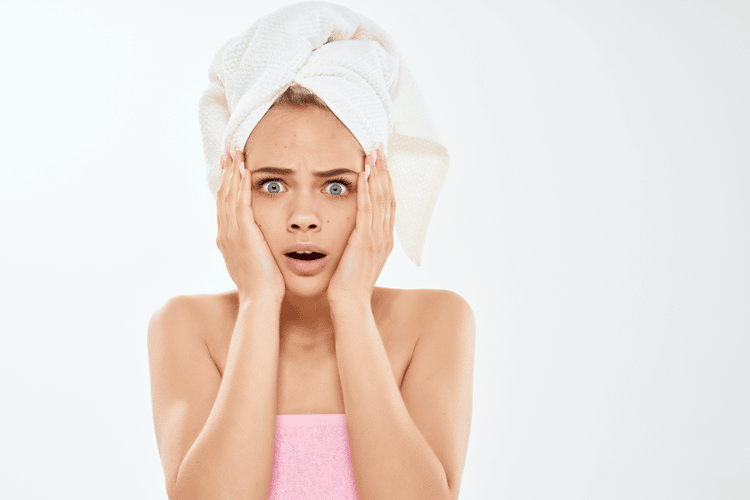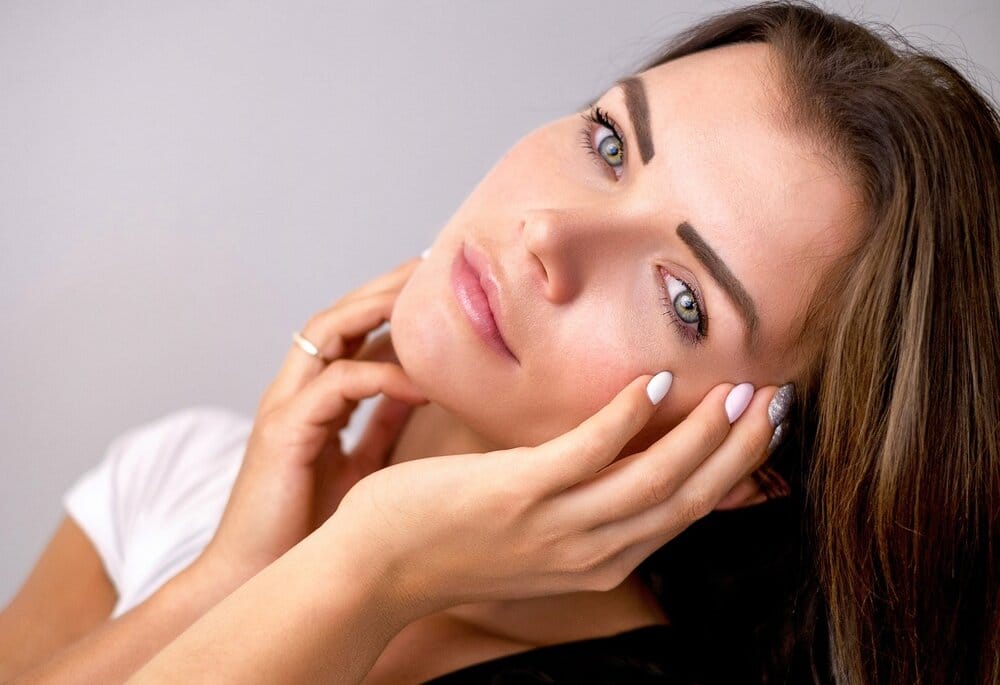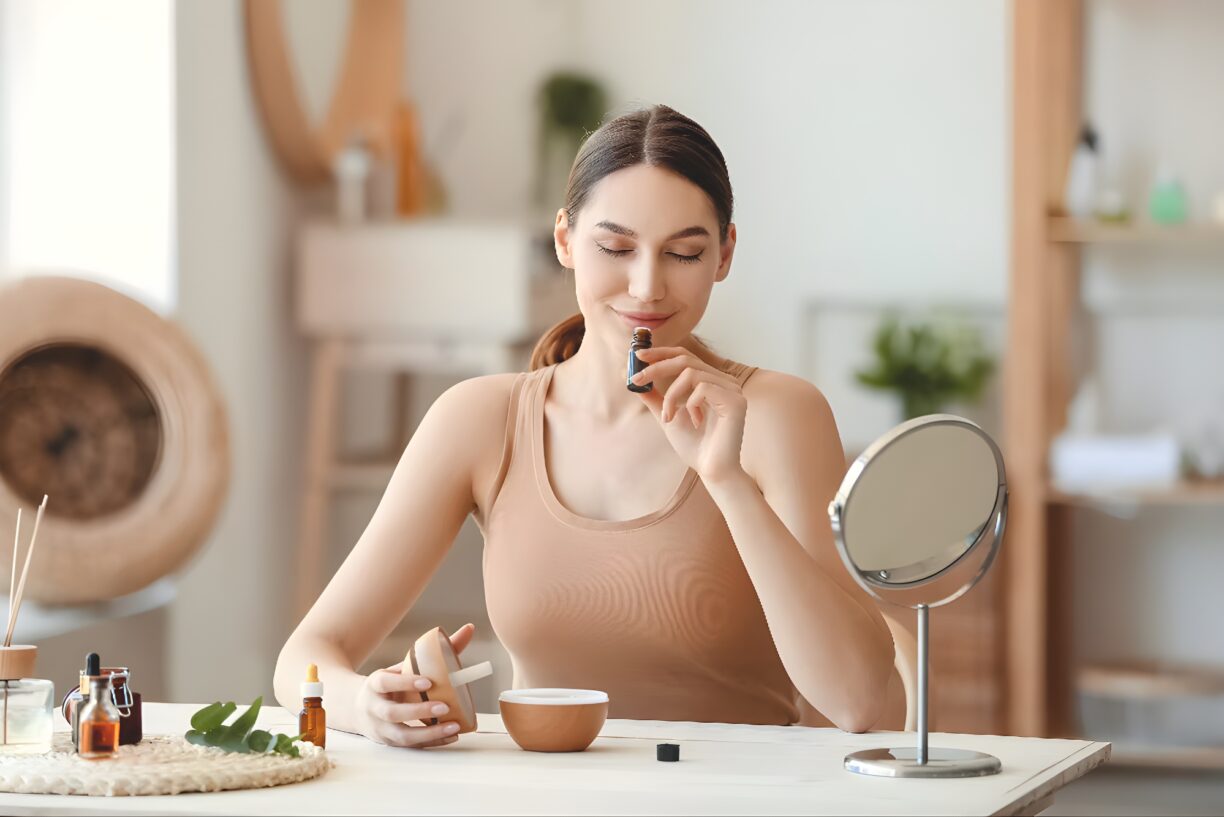
Ahead of the new year, Dr Daron Seukeran, Group Medical Director at sk:n, shares his expert advice on the behaviours to kick to the kerb and the good habits to implement for radiant skin in 2022.
Everyone’s skin is different; it is influenced by a range of factors, from genetics to hormones, health conditions and medications.
Whilst this means that some people have a more natural glow to their complexion, others must work a little harder.
However, external factors, such as the environment, our lifestyle, and behaviours, also play an important role in the appearance of our skin.
The good news? There are plenty of habits that we can adopt – and stop – when it comes to helping (or hindering) our skin’s health.
Let’s start with breaking those bad habits…
· Popping pimples
The pimple popping trend is rife on social media, and there is no doubt that when faced with a blemish it is tempting to give it a squeeze.
However, it is best to resist this urge, as by tampering with the skin, we allow more bacteria, dirt, and oil to make its way into the pore and effectively make it worse than it was before.
If done wrong, popping pimples can have unwanted side effects, leading to infection, residual scarring, and more noticeable or painful acne.
It also risks pushing the contents of the spot deeper into the skin, which can in turn increase inflammation and exacerbate acne.
If you suffer with moderate or severe acne and pharmacy-grade creams or medication have not helped, avoid picking at the skin and instead consult a dermatologist.
They can recommend a course of acne treatment and skincare products to get the best results for your skin.
For instance, there’s a range of clinic treatments available, such as chemical peels, which can help to improve the skin’s texture and tone, lighten the colour of dark spots, and prevent future breakouts by unclogging pores.
When it comes to acne, a superficial chemical peel that uses salicylic acid can help to minimise spots, while for acne scars, options include medium or deep peels, or for more severe cases, laser-based treatments such as Fraxel or CO2RE laser resurfacing.
· Ramping up the central heating
We lose around 300-400ml of water each day by diffusion through the skin. This is known as transepidermal water loss, which can be accelerated by low humidity, such as the climate created by central heating. Spending prolonged periods indoors with the central heating on high can therefore have a detrimental effect on the skin.
Essentially, the top layer of the skin, called the stratum corneum, is made up of skin cells and lipids. Imagine the skin cells as ‘bricks’ and lipids as ‘mortar’ holding bricks together.
This creates a waxy coating, which helps to prevent water loss through the skin. When the skin becomes dry and dehydrated, this barrier function can be disturbed, causing inflammation and irritation.
To combat these negative side effects, avoid cranking the central heating up where possible, and try some simple steps, such as turning off the heating at night or using a humidifier to regulate the moisture levels in the air and reduce how much transepidermal water loss your skin experiences.
· Smoking
Many of us are aware that smoking can have a detrimental effect on the body, but the impact on our skin is perhaps less well known.
Along with causing serious illnesses, the toxins found in tobacco can damage collagen and elastin production and accelerate the signs of ageing.
Smoking also deprives the skin of vital nutrients, causing ‘smoker’s lines,’ and restricting oxygen and blood flow, resulting in a grey, dull complexion. For glowing skin in the long term, it is ultimately best to kick this habit to the kerb!
In the meantime, to combat any premature signs of ageing which may have been caused by smoking, there is a variety of collagen and elastin stimulation treatments that can give your skin a glowing, more youthful appearance, including HydraFacial, chemical peels, and microneedling.
In addition, incorporating active ingredients such as retinol, hyaluronic acid, vitamins C, peptides and alpha hydroxy acids (like glycolic and lactic acid) to your skincare regime can also help to prevent and reduce the fine lines and wrinkles caused by smoking.
· Excessive alcohol consumption
It will come as little surprise that drinking alcohol can have a harmful effect on the skin.
Alcohol consumption has been linked to increased dehydration and inflammation, reduced immune system function and hormonal imbalances, which can trigger acne and aggressive outbreaks of cysts.
It can also deprive the skin of nutrients, water, and oxygen and is a widespread trigger for rosacea, though it can affect certain people more than others.
Cutting back on your alcohol intake can restore the skin’s natural vitamins and improve the overall appearance of your complexion – and what better time to start than dry January?!
· Dirty make up brushes
It’s an easy step to skip in the skincare routine but cleaning make up brushes and sponges regularly is vital for a fresh, glowing skin.
Through daily use, these can accumulate dead skin cells, dirt, oil, pollution, and bacteria.
Failing to clean tools used to apply makeup can lead to acne, breakouts and even wrinkles, by exposing the skin to oxidative stress from free radicals, which can cause a breakdown of collagen and elastin.
With this said, thankfully, it’s not all bad news and there are also lots of positive actions we can start now to improve the long-term health and appearance of our skin!
· Hydrate
The skin is made up of around 64% water, however, it loses this water constantly throughout the day through regular body functions, such as breathing and sweat.
If you fail to drink enough water, the skin may become dehydrated, causing itchiness, dullness, under-eye circles, sunken eyes, and more noticeable fine lines.
To keep skin moist and dewy, aim to drink 6 – 8 glasses of water each day. Along with upping your water intake, invest in a good moisturiser that can help to restore the skin’s barrier and prevent water loss from the skin.
When picking a moisturiser, look out for occlusive ingredients such as petrolatum, lanolin or mineral oils, or ingredients that attract moisture from a surrounding humid environment, such as glycerine, urea, and hyaluronic acid.
You could also consider incorporating regular facials, such as a HydraFacial, into your skincare regime can help to boost the skin’s hydration.
This uses six steps to refresh dull skin and protect against environmental factors, leaving the skin looking radiant!
· Cleanse regularly
For clear, naturally radiant skin, adopting a thorough cleansing routine is key. This helps to remove bacteria, oil, and dead cells from the surface of the skin.
While poor cleansing methods – including the use of make-up wipes – can remove make-up from the top layer of the skin, they will not penetrate deep into the skin’s pores, which can lead to clogged pores and breakouts.
For best results, try double cleansing to ensure all makeup, dirt and access oils are removed.
Using a cleanser that contains glycolic or salicylic acid is best for breaking down any oil but take care to avoid any exfoliants that can dry out your skin.
Using products that are too harsh can also impair the cell structure of the skin and diminish the barrier function of the epidermis layer.
Finally, after cleansing, massage the face in a circular motion to get blood flowing and don’t forget to apply a moisturiser!
· Wear SPF, always
The sun contains harmful UV rays, which can cause burning, sun damage, and exacerbate visible signs of ageing.
For glowing skin, protection against the sun is vital, but applying a daily SPF is an easy habit to drop during January when the mercury plummets and there’s ice on the ground.
However, the intermittent winter sun can still cause damage and increase the risk of melanoma, so it’s important to get into a good routine, applying an SPF 30 or higher all year round if you want to keep your skin looking fresh and radiant.
For more useful tips and advice, visit www.sknclinics.co.uk or book a consultation online or via 0330 162 6320. For inspiration, follow @sknclinics on social media.





